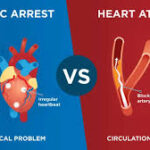Acute vs Chronic Pain: Key Differences and Why They Matter

Pain is something everyone experiences, but not all pain is the same. Many people confuse acute pain—the short-term type—with chronic pain, which can last for months or even years. Understanding the difference is not just medical jargon; it’s the foundation for getting the right treatment and improving quality of life.
In this article, we’ll explain the difference between acute and chronic pain, why it matters, and when you should see a doctor.
What is Acute Pain?
Acute pain is short-term pain that comes on suddenly, usually as a direct response to an injury or illness. It is the body’s way of warning that something is wrong.
Examples of acute pain include:
-
Pain after surgery
-
A broken bone
-
Burns or cuts
-
Toothache
-
Infections like tonsillitis or ear infection
Acute pain typically improves once the underlying cause is treated. For example, after a cut heals or an infection clears, the pain goes away.
What is Chronic Pain?
Chronic pain is long-term pain that persists beyond the normal healing period—usually lasting more than 3 to 6 months. Unlike acute pain, chronic pain may continue even after the initial injury or illness has healed.
Examples of chronic pain include:
-
Arthritis and joint pain
-
Chronic back or neck pain
-
Migraines or frequent headaches
-
Fibromyalgia
-
Diabetic neuropathy (nerve pain from diabetes)
Chronic pain often interferes with daily life, sleep, work, and emotional wellbeing, making it more complex to manage.
Key Differences Between Acute and Chronic Pain
| Feature | Acute Pain | Chronic Pain |
|---|---|---|
| Duration | Short-term (days to weeks) | Long-term (3+ months) |
| Cause | Injury, surgery, infection | Long-standing illness, nerve damage, or unknown cause |
| Treatment | Resolves once cause is treated | Ongoing management required |
| Impact | Temporary inconvenience | Can affect lifestyle, mental health, and productivity |
Why Does the Difference Matter?
Many people in Nigeria and across the world treat all pain the same way, often relying on over-the-counter painkillers. But the truth is: acute and chronic pain need different approaches.
-
Acute pain: usually requires short-term treatment such as rest, medication, or minor procedures.
-
Chronic pain: often needs a long-term management plan that combines medication, physical therapy, lifestyle changes, and sometimes counseling.
Treating chronic pain like acute pain may only provide temporary relief without addressing the root problem.
Common Treatment Approaches
-
For Acute Pain:
Rest, ice/heat, painkillers (paracetamol, NSAIDs), antibiotics (if infection-related), or surgery if necessary. -
For Chronic Pain:
Combination of pain medicines, physiotherapy, exercise, relaxation techniques, cognitive-behavioral therapy, lifestyle changes (like better sleep and diet), and long-term medical monitoring.
When to See a Doctor
Not all pain requires hospital treatment, but certain red flags mean you should see a doctor immediately:
-
Pain that lasts more than 2 weeks without improvement
-
Severe pain after an injury or surgery
-
Pain associated with fever, weight loss, or night sweats
-
Numbness, tingling, or weakness in arms/legs
-
Headaches that keep coming back
Early medical attention helps prevent complications and improves treatment outcomes.
Pain Management in Nigeria: A Growing Need
In Nigeria, millions live with untreated or poorly managed chronic pain due to limited access to healthcare, cost of treatment, and lack of awareness. Many people rely solely on self-medication, which can lead to drug misuse and poor results.
At HubPharm Africa, we are committed to helping patients access genuine medicines, expert pharmacist support, and holistic care for both acute and chronic pain. By combining technology, health coaching, and community outreach, we aim to improve pain management and quality of life across Africa.
Final Thoughts
Understanding the difference between acute and chronic pain is the first step toward effective treatment. Acute pain is your body’s alarm system—it tells you something is wrong. Chronic pain, however, is a complex condition that requires ongoing care and support.
If you’re struggling with persistent pain, don’t ignore it. Seek medical advice, get the right diagnosis, and explore the treatment options available to you.
Written by Fawzi Rufai, Medically Reviewed by Sesan Kareem



